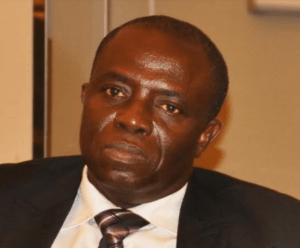Ghana elected to serve on African Court panel of judges

The African Union Commission at its 41st Ordinary Session of the Executive Council held in Lusaka, Zambia on July 15, elected Justice Dennis Dominic Adjei to serve a six-year term on the African Court on Human and Peoples Rights.
Justice Adjei replaces Ms. Marie-Theresa Mukamulisa from Rwanda who occupied the floating seat, in accordance with Paragraph Two of Decision EX.CL/Dec. 907(XXVIII).
At the close of nominations, the nominees were Justice Dennis Dominic Adjei, from Ghana; Lady Justice Aua Balde, from Guinea Bissau; Lady Justice Harimahefa Ratiaraisoa, from Madagascar; Justice Pedro Sinai Nhatitima, from Mozambique and Lady Justice Marie Therese Mukamulisa the incumbent from Rwanda.
According to African Union Commission document made available to the Ghana News Agency in Tema, there were three rounds of voting after which Justice Adjei was elected.
Ghana now has a member on the African Court of Human and Peoples Rights after Justice Sophia Akuffo, the first Ghanaian who served as a member and finally as the President of that court about six years ago.
The African Court was established by virtue of Article One of the Protocol to the African Charter on Human and Peoples’ Rights on the Establishment of an African Court on Human and Peoples’ Rights (the Protocol).
The Protocol establishing the African Court was adopted on June 9, 1998 in Burkina Faso and came into force on January 25, 2004 after it was ratified by more than 15 countries.
The mandate of the African Court is to complement and reinforce the functions of the African Commission on Human and Peoples’ Rights (the African Commission – often referred to as the Banjul Commission), which is a quasi-judicial body charged with monitoring the implementation of the Charter.
The African Court applies the provisions of the African Charter on Human and Peoples’ Rights and other human rights instruments ratified by the States concerned. It does not have criminal jurisdiction like the International Criminal Court.
The African Court was established to complement and reinforce the functions of the African Commission on Human and Peoples’ Rights (the African Commission – often referred to as the Banjul Commission), which is a quasi-judicial body charged with monitoring the implementation of the Charter.
Its mission is to enhance the protective mandate of the African Commission on Human and Peoples’ Rights by strengthening the human rights protection system in Africa and ensuring respect for and compliance with the African Charter on Human and Peoples’ Rights, as well as other international human rights instruments, through judicial decisions.
Source: GNA
